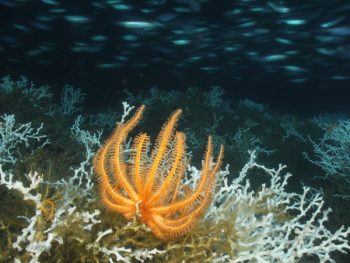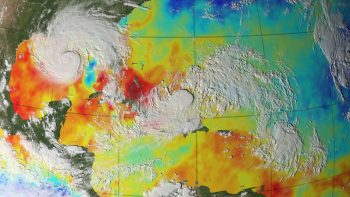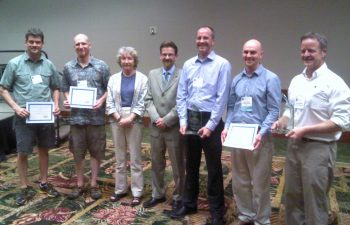NOPP Excellence in Partnering Award
One of the stated objectives of the NOPP is to identify the most effective and productive project partnerships that have led to notable success in both reaching their goals and sparking incentives for further research investments.
The NOPP Award for Excellence in Partnering has two main purposes:
- to recognize superior efforts among partners in coordinating an exemplary NOPP project and
- to highlight the successes and benefits of NOPP projects to the ocean sciences community.
Any Principal Investigator with an ongoing NOPP project or Federal Program Officers involved in the Program can nominate their efforts and teams for the Excellence in Partnering Award. Members of the NOPP committee evaluate nominated projects and select recipients based on several criteria:
- Ocean sector diversity among the partners;
- Level of effort/involvement by partners (Are the partners actively and equally involved in the research and/or development of the project?);
- Long-term commitment of the partners beyond the NOPP-funding period;
- The success of the partnership in meeting its project objectives;
- Impact of the effort on ocean research and/or education; and
- Distinguishing characteristics of the partnership that contributed to its success.
Awards are not made if it is determined that no suitable candidates have been nominated.
If you would like to nominate your project for this award, contact the NOPP Program Manager for details and the nomination form. Nomination packets are generally due by mid-October and the Award ceremony is held at a major conference such as AGU or Ocean Sciences.
Check out some of our previous recipients and read more about our current awardee.
Excellence in Partnering Portfolios

Researching of deep-sea corals near active oil and gas platforms in the Gulf of Mexico. Read more

Global Ocean Data Assimilation Experiment (GODAE) produced an improved, high-resolution, global, near-real-time (NRT) sea surface temperature analyses. Read more

The development of long-term in situ nutrient sensor systems. Read more

